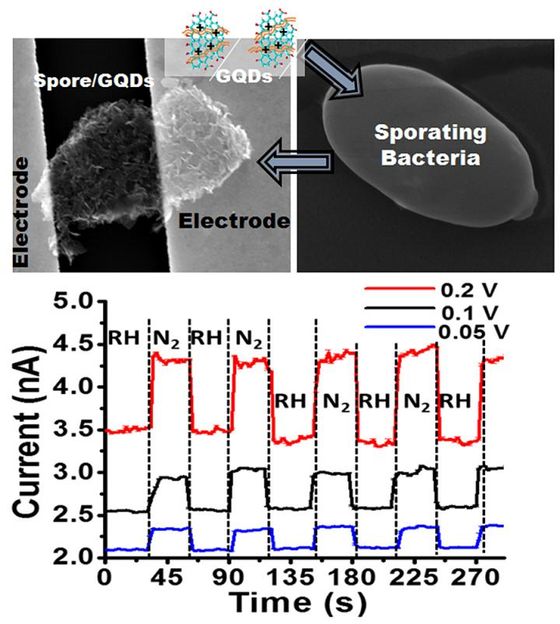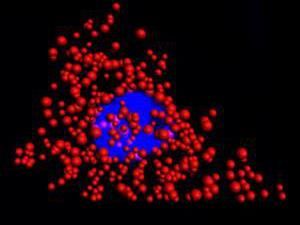Tiny bio-robot is a germ suited-up with graphene quantum dots
Advertisement
As nanotechnology makes possible a world of machines too tiny to see, researchers are finding ways to combine living organisms with nonliving machinery to solve a variety of problems. Like other first-generation bio-robots, the new nanobot engineered at the University of Illinois at Chicago is a far cry from Robocop. It's a robotic germ.

Graphene quantum dots deposited on a sporating bacteria produces a graphene coated spore. Upon attachment of electrodes across the cell, a bio-electronic device is produced that is highly sensitive to humidity. Here, the spore reacts actively to humidity; and the reaction is translated to an electronic response from the interfaced graphene quantum dots.
Berry Research Laboratory at UIC
UIC researchers created an electromechanical device - a humidity sensor - on a bacterial spore. They call it NERD, for Nano-Electro-Robotic Device. The report is at Scientific Reports.
"We've taken a spore from a bacteria, and put graphene quantum dots on its surface - and then attached two electrodes on either side of the spore," said Vikas Berry, UIC associate professor of chemical engineering and principal investigator on the study.
"Then we change the humidity around the spore," he said.
When the humidity drops, the spore shrinks as water is pushed out. As it shrinks, the quantum dots come closer together, increasing their conductivity, as measured by the electrodes.
"We get a very clean response - a very sharp change the moment we change humidity," Berry said. The response was 10 times faster, he said, than a sensor made with the most advanced man-made water-absorbing polymers.
There was also better sensitivity in extreme low-pressure, low-humidity situations.
"We can go all the way down to a vacuum and see a response," said Berry, which is important in applications where humidity must be kept low, for example, to prevent corrosion or food spoilage. "It's also important in space applications, where any change in humidity could signal a leak," he said.
Currently available sensors increase in sensitivity as humidity rises, Berry said. NERD's sensitivity is actually higher at low humidity.
















































